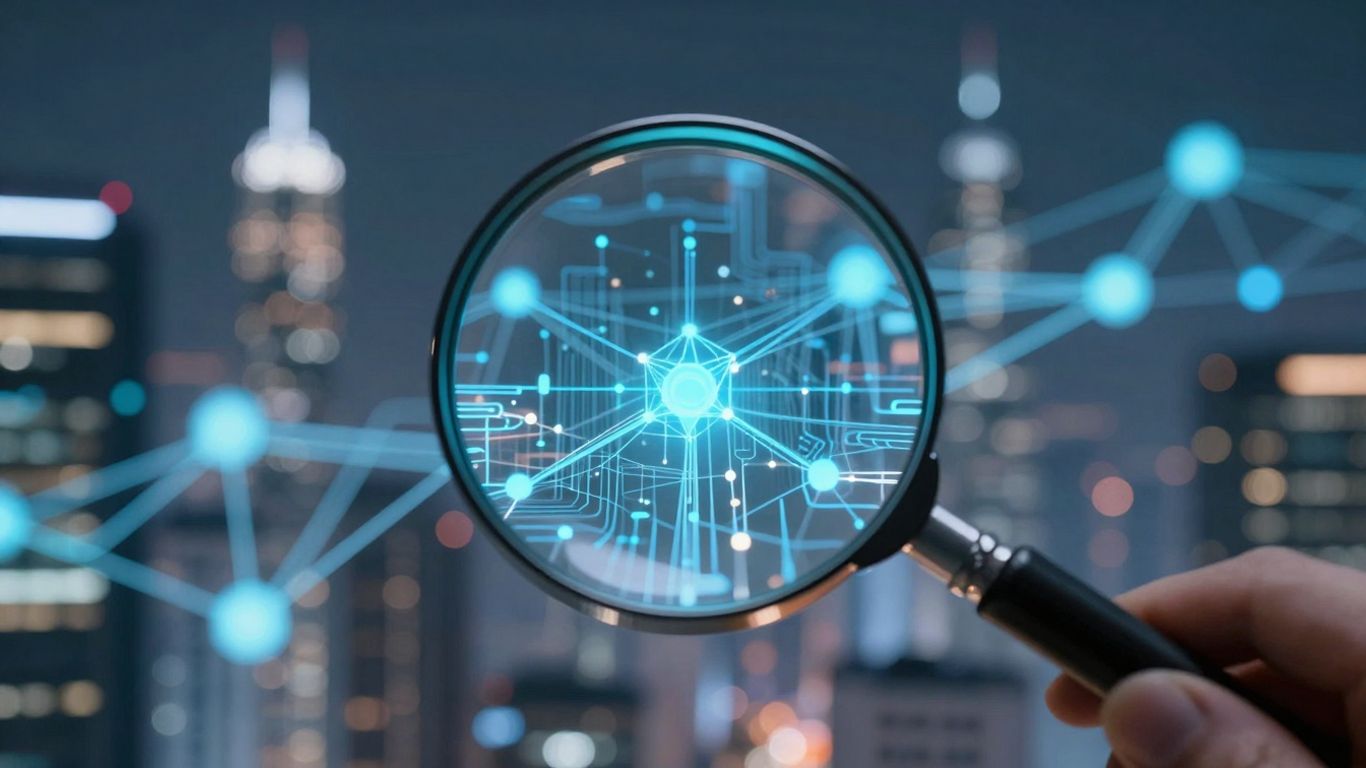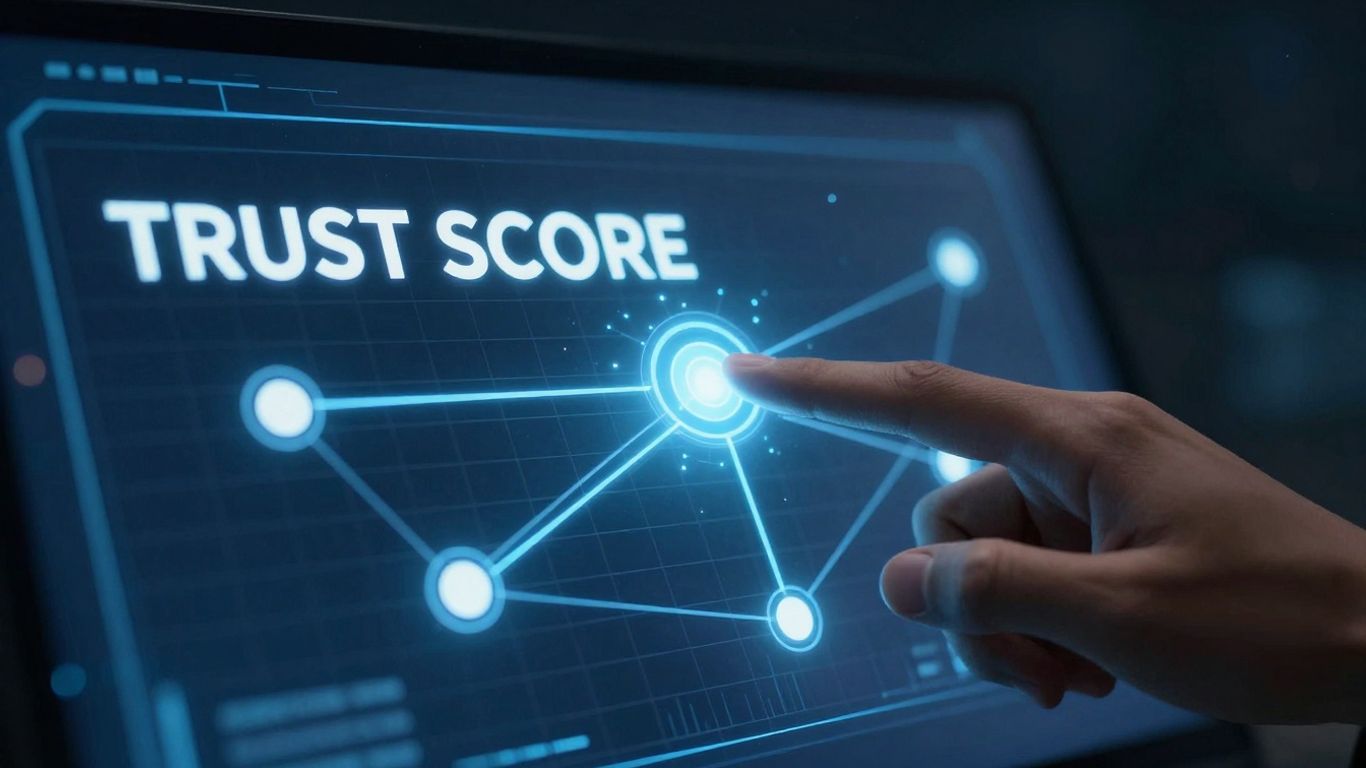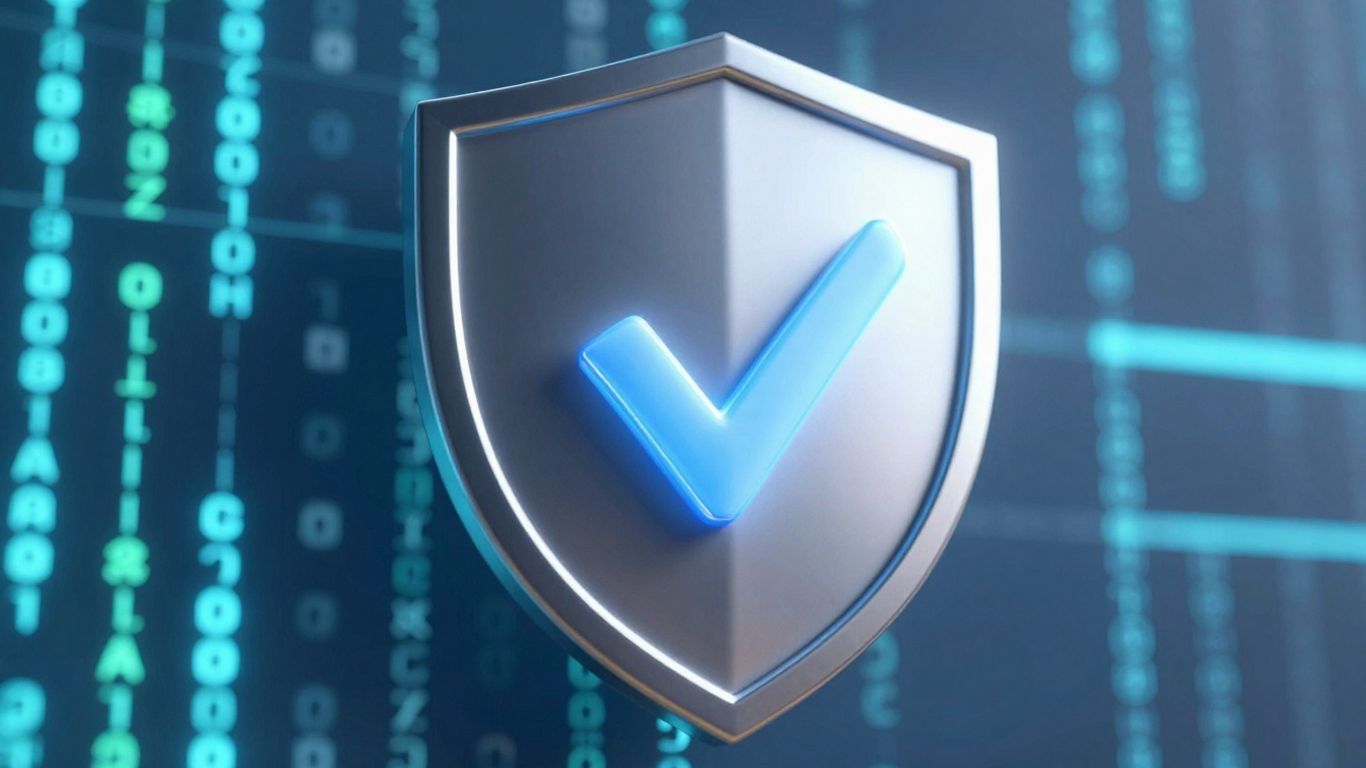[ newsletter ]
Stay ahead of Web3 threats—subscribe to our newsletter for the latest in blockchain security insights and updates.
Thank you! Your submission has been received!
Oops! Something went wrong. Please try again.
Explore the future of finance with blockchain and audit. Discover how these technologies revolutionize financial records, build trust, and integrate with AI for enhanced efficiency.





It feels like every day there's a new headline about blockchain or AI changing the world. In finance, these two technologies are really starting to show how they can work together, especially when it comes to keeping things honest and accurate. Think about it: we need ways to trust that our money is safe and that financial records are correct. This is where blockchain and audit come into play, offering some pretty interesting solutions to old problems.

Think about how we've always kept financial records. It's been a lot of paper, a lot of different systems that don't always play nice together. It’s kind of like trying to keep track of everything with a bunch of sticky notes scattered everywhere. Well, blockchain is changing all of that. It's like moving from those scattered notes to one super-organized, unchangeable digital notebook that everyone involved can see and trust.
This is the big one. Blockchain creates records that, once they're put in, can't be changed or deleted. Imagine a transaction happening – it gets recorded, verified by a network of computers, and then it's there forever, linked to everything that came before it. This makes financial data incredibly secure and trustworthy. No more worrying about someone secretly altering a number to hide something. It’s a fundamental shift in how we think about data integrity. This ability to create tamper-proof records is a game-changer for keeping public funds accountable, offering a clear audit trail for public fund management.
The core idea is creating a shared, unalterable history of financial activity that builds confidence and simplifies verification for everyone involved.
Because the records are so solid and transparent, a lot of the old, tedious work can be automated. Think about things like reconciliations or checking if everything adds up. Smart contracts, which are basically agreements written in code, can handle a lot of these tasks automatically. This means fewer errors, less manual effort, and ultimately, lower costs for businesses. It’s about making things run smoother and faster.
Here's a quick look at how blockchain improves things:
For auditors, this is a big deal. Instead of digging through piles of documents and trying to piece things together, they can access a clear, verifiable history of every transaction. They can see exactly what happened, when it happened, and that it hasn't been messed with. This makes the whole audit process much more efficient and reliable. It’s about giving auditors direct access to a single source of truth.

When we talk about finance, and especially auditing, trust is pretty much everything, right? Traditional systems have always had their weak spots, leaving room for questions and sometimes, outright manipulation. But blockchain? It's changing the game by making things way more open and honest.
Think of a blockchain as a shared notebook that everyone in a network can see, but no one can erase or scribble over past entries. Every financial transaction gets recorded, verified by multiple people, and then added to the chain. This means that once something is in there, it’s permanent. This immutability is a big deal for accountability. If a transaction happened, it’s recorded for good, and everyone involved knows it. This makes it much harder for anyone to hide or alter financial activities. It’s like having a permanent, tamper-proof record of everything that’s gone on.
Often, in business, some people know more about the financial situation than others. This is called information asymmetry, and it can lead to problems. Blockchain helps fix this by giving everyone who needs access the same, up-to-date information. Auditors, investors, and even regulators can look at the same ledger. This shared view means fewer surprises and a more level playing field.
Here’s how blockchain helps:
The core idea is creating a shared, unalterable history of financial activity that builds confidence and simplifies verification for everyone involved. This move towards a system where verifiable truth is built into the process itself, rather than being something we have to painstakingly uncover, is a significant shift.
So, we've talked about blockchain making financial records more solid. Now, let's think about how Artificial Intelligence, or AI, can make using those records even better, especially when it comes to auditing. Imagine AI as a super-smart assistant that can look through mountains of data way faster than any person. When you combine this with blockchain's tamper-proof records, auditors get a serious upgrade.
AI can scan through all those immutable blockchain transactions in real-time. It's like having a tireless watchdog that's constantly checking for anything unusual. This means potential problems, like weird transaction patterns that might signal fraud, can be spotted almost as they happen. It really shifts auditing from just looking back at what happened to actually predicting what might happen.
Here’s a quick rundown of how AI helps:
This combination means auditors can spend less time on repetitive checks and more time on the big picture stuff that really matters.
Now, here's where it gets really interesting. Just finding a problem isn't always enough, right? You need to know why it's a problem. That's where 'Explainable AI', or XAI, comes into play. Think of it like this: a regular AI might just flag a transaction as 'suspicious'. But an XAI can tell you why it flagged it – maybe it was an unusually large amount for that specific account, or it happened at an odd time of day compared to other transactions from the same source.
This is super important for auditors. They can't just accept a computer's decision without understanding the reasoning behind it. XAI provides that transparency. It helps auditors trust the AI's findings and allows them to explain those findings to others, like management or regulators. Without this, AI might just seem like a black box, and that's not ideal for something as serious as financial auditing.
The goal isn't to replace human auditors, but to give them incredibly powerful tools that make their work more efficient and insightful.
So, blockchain sounds pretty neat for auditing, right? But getting it to work everywhere isn't exactly a walk in the park. There are a few hurdles we need to jump over before it becomes standard practice.
One of the big issues is how well blockchain networks can handle a massive amount of data. As more companies start using it, the networks need to be able to process transactions quickly and efficiently. Right now, some blockchains can get a bit bogged down, which isn't ideal when you need fast audit results. Plus, different blockchain systems don't always talk to each other easily. This lack of interoperability means getting data from one system to another can be a real headache, making it tough to get a complete picture. It’s like trying to connect different puzzle pieces that just don’t fit.
The rules around blockchain are still being figured out. Governments and financial bodies are trying to keep up with this new technology, and that means the regulations can change. This uncertainty makes it tricky for businesses and auditors to know exactly what they need to do to stay compliant. It’s like trying to build something when the building codes keep changing. The evolving nature of regulations means that staying informed and adaptable is key for any organization looking to implement blockchain solutions in their audit processes.
Let's be honest, most auditors and finance professionals didn't learn about blockchain in school. There's a need for training and education so people understand how this technology works and how to use it effectively in their jobs. Without the right skills, adopting blockchain becomes a lot harder. It's not just about understanding the tech itself, but also how to apply it to audit procedures and interpret the data it provides.
Here's what needs attention:
The push for decentralized trust, while powerful, brings up questions about who is responsible when things go wrong. In a system without a central authority, accountability can become blurry, which is a significant concern for regulators and users alike.
So, what does all this blockchain stuff mean for the folks who actually do the auditing? It's a big question, and honestly, it's not about robots taking over. Think of it more like getting a super-powered assistant. Blockchain isn't here to replace auditors; it's here to change how they work, making their jobs more about analysis and less about tedious checking.
Instead of spending days sifting through paper trails or endless spreadsheets, auditors will have access to a shared, unchangeable ledger. This means a lot of the grunt work, like verifying individual transactions or checking for simple errors, can be handled by the technology itself. This frees up auditors to focus on the bigger picture. The core of auditing will shift from data verification to data interpretation and strategic insight.
With blockchain handling the data integrity and basic verification, auditors can shift their attention to more complex tasks. This includes:
Even with all this tech, there's still a huge need for human insight. Blockchain provides data, but it doesn't inherently understand context or intent. Auditors will still need to apply their professional judgment to interpret the data, assess the implications of findings, and make decisions about the fairness of financial statements. For example, a transaction might be perfectly recorded on the blockchain, but an auditor's judgment is needed to determine if it represents a genuine business activity or something more questionable. The shift means auditors will need to be comfortable with technology, but more importantly, they'll need to be sharp critical thinkers. The ability to ask the right questions and understand the 'why' behind the data will become even more important than ever before.
The move towards blockchain in auditing isn't just about making things faster; it's about fundamentally changing the nature of trust and verification in financial reporting. It's a move towards a system where data integrity is built-in, not just checked after the fact.
Think back to how trust worked in business a long time ago. You probably knew the people you were dealing with, or at least had a mutual connection. Trust was built on personal relationships and reputations. As the world got bigger and we started doing business with strangers, we needed new ways to build confidence. This led to the rise of big institutions like banks and regulators. They became the trusted third parties, the ones who verified everything. It worked, but it also meant a lot of power was concentrated in a few hands, and sometimes things got slow and costly.
Now, blockchain is changing things. Instead of relying on one central authority, blockchain uses a shared digital ledger spread across many computers. This makes it really hard to mess with because any change needs agreement from the whole network. It's like a public record book that everyone can see, but no single person can alter. This openness and security built into the system can help rebuild confidence. It's less about trusting a specific company and more about trusting the technology itself. This algorithmic trust is a big deal for making financial systems more open and less likely to fail because one part breaks.
Traditional accounting has relied on double-entry bookkeeping for centuries. Every transaction has at least two entries: a debit and a credit. This system is good, but it's still possible for errors or fraud to occur between the entries or before they are recorded. Blockchain introduces the idea of 'triple-entry' accounting. In this model, a third, cryptographically secured entry is added to the ledger, often automatically through smart contracts. This third entry acts as an independent verification, creating a more robust and transparent record. This added layer of verification significantly reduces the risk of manipulation and reconciliation issues. It means that when a transaction is recorded, it's not just recorded by the parties involved, but also by the network itself, creating an immutable and verifiable audit trail.
The shift towards decentralized trust mechanisms and advanced accounting methods like triple-entry bookkeeping signifies a move away from relying solely on intermediaries and manual checks. It's about building integrity directly into the financial record-keeping process, making it more secure and transparent from the start.
It feels like we're always talking about blockchain for sending money or tracking payments, right? But honestly, that's just the tip of the iceberg. The real excitement is how this tech is popping up in all sorts of other areas, changing how we think about ownership, agreements, and even how we organize things.
DeFi is a pretty big deal. It's basically taking financial services – things like lending, borrowing, and trading – and rebuilding them on blockchain technology. Instead of going to a bank, you might use a decentralized app (dApp) to get a loan. This removes a lot of the traditional gatekeepers, making these services potentially more accessible and cheaper. It's a whole new financial world built on code and community consensus, not just big institutions.
DeFi aims to create a more open, transparent, and efficient financial system. It's still got its growing pains, but the potential to democratize finance is huge.
Think about owning something valuable, like a piece of art, a building, or even intellectual property. Tokenization means representing ownership of these real-world assets as digital tokens on a blockchain. This makes them easier to divide, trade, and manage. Imagine owning a tiny fraction of a skyscraper or a famous painting – that's what tokenization can enable.
For auditors, this is a whole new ballgame. We're not just looking at financial transactions anymore. We need to figure out:
It's a complex area, but it opens up possibilities for more liquid markets and broader investment opportunities. The audit world will definitely need to adapt to keep pace.
So, what's the takeaway from all this talk about blockchain and auditing? It's pretty clear that these two worlds are getting closer, and honestly, it's a good thing. Blockchain is building a super solid, open record of financial stuff, and auditing is changing from just checking things after the fact to being part of the process itself. It's not just about finding mistakes anymore; it's about stopping them before they happen and building a more reliable financial system for everyone. The tools are changing, and the jobs will too, but the main goal – keeping finances honest – stays the same. It's an interesting time to see how this all plays out.
Imagine a digital notebook that's shared with many people. Every time something new happens, like a payment, it's written down in the notebook. Everyone gets a copy, and once something is written, it can't be erased or changed. This makes it super secure and honest. In finance, this means transactions can be recorded safely and openly, cutting out the need for middlemen and making things faster and cheaper.
Smart contracts are like digital agreements that automatically do things when certain conditions are met. Think of a vending machine: you put in money (condition), and it gives you a snack (automatic action). In finance, they can automatically release payments when a service is completed or a product is delivered, making deals happen smoothly without needing lawyers or banks to oversee every step.
Yes, AI can be a huge help! It can look through tons of financial data super fast, much faster than a person. It's great at spotting weird patterns or mistakes that might mean something is wrong, like fraud. This lets human auditors focus on the really tricky parts.
DeFi is like taking regular money services, such as borrowing or trading, and putting them on blockchain. This means people can deal directly with each other, without needing a bank. For auditors, this means they check the computer code and the shared record instead of a company's private books.
No, blockchain won't replace auditors. Instead, it will help them. Think of it like giving auditors a super-powered tool. Blockchain handles the secure recording of information, freeing up auditors to do more important things like analyzing data, understanding business risks, and giving advice.
There are a few tricky parts. First, some blockchain systems can get slow when lots of people use them, which isn't great for quick audits. Also, different blockchain systems don't always work together easily. Plus, the rules and laws for using blockchain are still being figured out, making it hard for companies to know exactly what to do to follow the rules. Lastly, not everyone knows how to use this new technology yet, so training is important.


